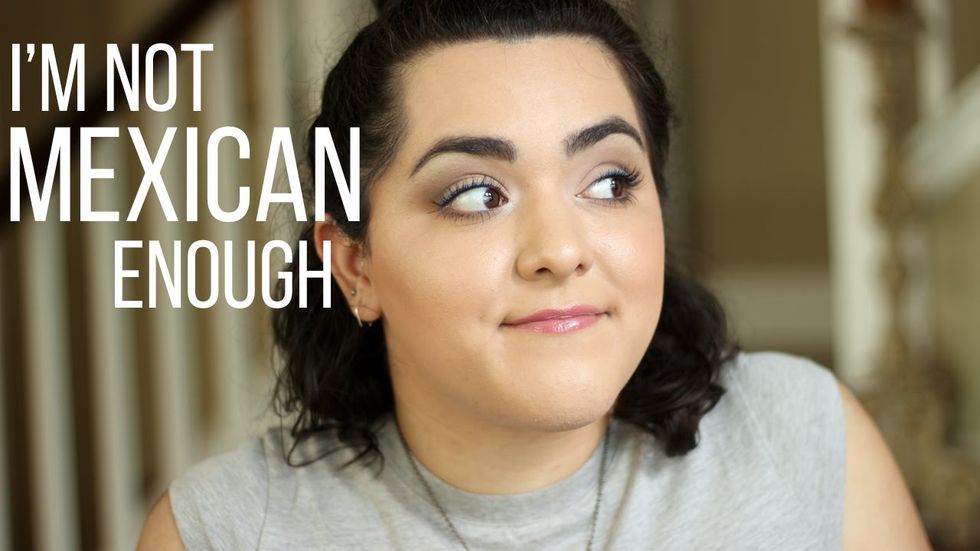It seemed like a normal day; I was at the bus stop waiting to go home from school when a lady came up to me and began asking me something. I couldn’t understand her because she was speaking Spanish. Instantly, waves of guilt and embarrassment crashed over me. I felt useless but tried to figure out what she was saying. Finally, I gave up and apologized, saying I can’t speak Spanish. She walked away and I could tell she was disappointed. I was disappointed in myself too.
This happens to me a lot and each time it does, I feel horrible. It is a reminder to me that although I love my culture and where I come from, I’m still not considered a “true Mexican.” I am seen as “white-washed” because I can’t speak Spanish, I don’t like spicy foods and I don’t listen to a lot of Spanish music. When I was younger, my friend’s family would ask me to say a word in Spanish like "arroz con leche" or even "hola" just for their own amusement. It wasn’t funny to me; it was demeaning. Because of this, I didn’t really have an idea of where I belonged. I felt like I had no identity.
I am a third generation Mexican-American. I grew up differently than my other friends. I didn’t grow up listening to rancheras or corridos. I grew up listening to the Eagles and America. In my household, you would only hear English. I didn’t really eat a lot of Mexican dishes; I remember eating a lot of Hamburger Helper or Teriyaki Beef with white rice. There are some traditions that my family still practices that I hold very dear to my heart, like, for example, posadas. Posadas are events where families get together during Christmas to have a rosary. We recreate the journey Mary and Joseph took before Jesus was born. This tradition helped me stay connected to my culture despite feeling very lost.
I didn’t realize that this lack of identity was problematic to others until I started college. I took my first Chicano Studies class and it changed my life. My whole way of thinking was altered when it came to my identity. It turns out during the Chicano Movement, although many Latinos stood together in solidarity, there was still discrimination happening within the community. Some Latinos felt like the term "Mexican-American" divided them apart more than connecting the two ethnicities. Most Latino youths felt lost; they felt as though they had to pick one identity and suppress the other.
In my case, I was brought up in a way where I wasn’t in touch with my Mexican heritage as much as my American. Looking back to when I first started elementary school, I noticed I was only allowed to speak English; therefore, I lost a part of my identity. From the outside perspective, people can not see that; all they saw was a teenager who didn’t appreciate her culture.
I am a young woman who knows her identity. I don’t need anyone to approve it. This struggle of finding myself has made me strong and confident in who I am. Just because I do not speak Spanish just yet, does not mean I am not proud of my heritage; it does not make me any less of a Mexican.
















